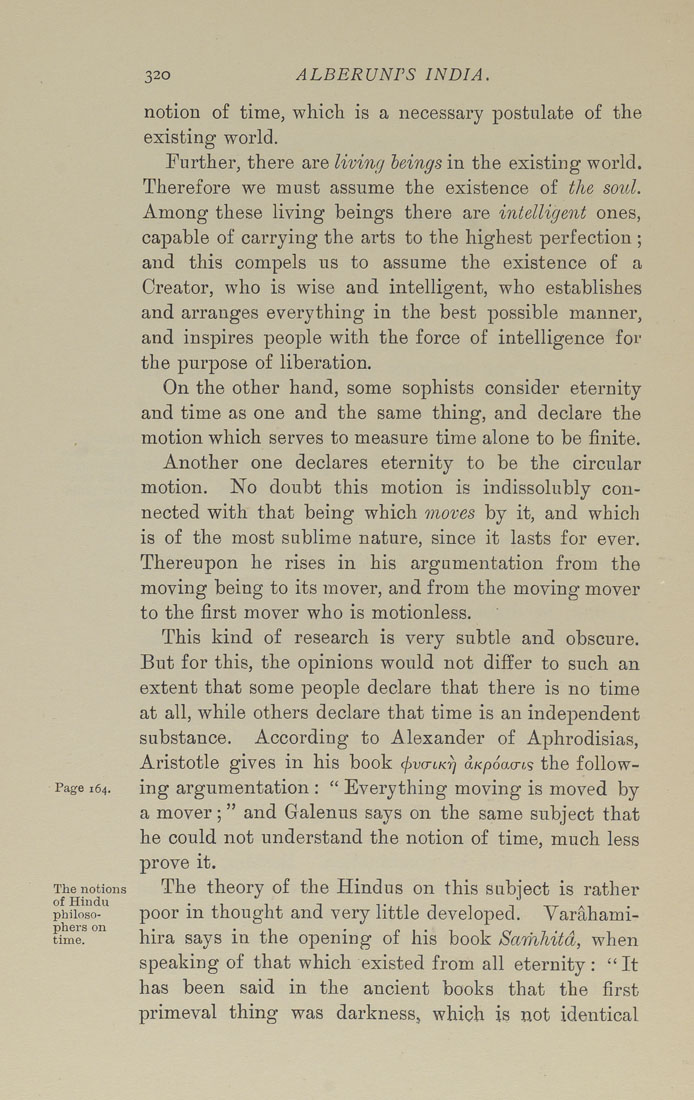Bīrūnī, Muḥammad ibn Aḥmad, Alberuni's India (v. 1)
(London : Kegan Paul, Trench, Trübner & Co., 1910.)
|
||
|
|
|
|
| Page 320 |

320 ALBERUNPS INDIA. Page The notions of Hindu philoso¬ phers on time. notion of time, which is a necessary postulate of the existing world. Further, there are living beings in the existing world. Therefore we must assume the existence of the soul. Among these living beings there are intelligent ones, capable of carrying the arts to the highest perfection ; and this compels us to assume the existence of a Creator, who is wise and intelligent, who establishes and arranges everything in the best possible manner, and inspires people with the force of intelligence for the purpose of liberation. On the other hand, some sophists consider eternity and time as one and the same thing, and declare the motion which serves to measure time alone to be finite. Another one declares eternity to be the circular motion. No doubt this motion is indissolubly con¬ nected with that being which moves by it, and which is of the most sublime nature, since it lasts for ever. Thereupon he rises in his argumentation from the moving being to its mover, and from the moving mover to the first mover who is motionless. This kind of research is very subtle and obscure. But for this, the opinions would not differ to such an extent that some people declare that there is no time at all, while others declare that time is an independent substance. According to Alexander of Aphrodisias, Aristotle gives in his book cjiva-iKy) aKpoaa-fs the follow¬ ing argumentation : " Everything moving is moved by a mover;" and Galenus says on the same subject that he could not understand the notion of time, much less prove it. The theory of the Hindus on this subject is rather poor in thought and very little developed. Varahami¬ hira says in the opening of his book Sarhhitd, when speaking of that which existed from all eternity: "It has been said in the ancient books that the first primeval thing was darkness, which is not identical |
| Page 320 |







